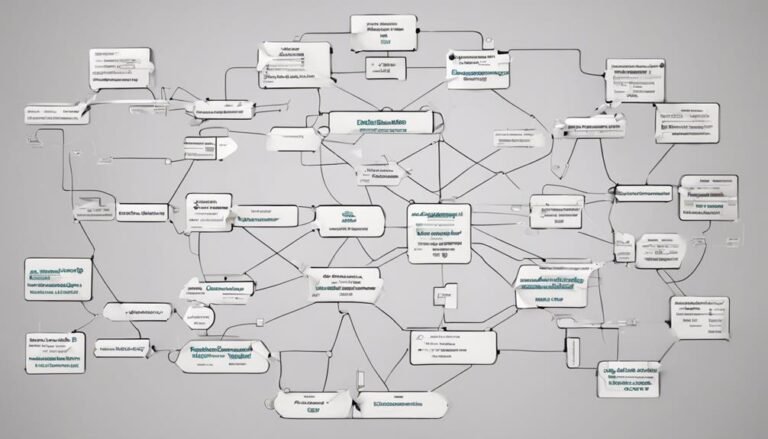Unlocking Consumer Behavior: Freudian Motivation Theory Insights
Exploring consumer behavior through Freudian Motivation Theory reveals the intricate connection between conscious desires and deeper motivations. Understanding these layers provides marketers with insights to create impactful campaigns that resonate emotionally. By tapping into consumers' hidden desires, brands can establish strong connections and influence purchasing decisions effectively. This theory reveals the psychological triggers that drive consumer behavior, aiding in predicting and influencing choices. Market researchers employ sophisticated methodologies rooted in psychological theories to gain insights into consumer perceptions. Revealing consumer behavior with Freudian Motivation Theory offers a thorough understanding of the complexities behind consumer choices and marketing strategies.
Key Takeaways
- Freudian Motivation Theory reveals hidden consumer motivations.
- Understanding subconscious desires influences purchasing decisions.
- Emotional triggers play a significant role in consumer behavior.
- Marketers use theory to create compelling campaigns.
- Psychological insights aid in predicting and influencing consumer behavior.
Freudian Motivation Theory Overview
Within the domain of consumer behavior analysis, the Freudian Motivation Theory stands as a pivotal framework that explores deeply into the intricate layers of the human psyche to uncover the driving forces behind individuals' purchasing habits.
This theory investigates both conscious desires and hidden motivations that influence consumer behavior. By understanding the interplay between what consumers consciously want and the underlying, often subconscious, motives guiding their choices, marketers can tailor strategies to resonate with these deep-seated urges.
Freud's theory helps shed light on why individuals are drawn to specific products or brands, revealing the complex relationship between personal desires and societal influences. By tapping into these conscious and unconscious needs, businesses can craft compelling marketing campaigns that speak directly to consumers' innermost motivations.
Influence on Consumer Behavior
The Freudian Motivation Theory provides a profound understanding of consumer behavior by uncovering the intricate interplay between conscious desires and hidden motivations that influence purchasing decisions. Psychological triggers play a significant role in consumer behavior, as individuals are often driven by subconscious impulses that impact their choices.
These triggers can be linked to emotional connections consumers have with products, which influence their decision-making process. Understanding these emotional connections is vital for marketers looking to create impactful campaigns that resonate with their target audience on a deeper level.
Application in Marketing Strategies
Utilizing Freudian motivation theory in marketing strategies allows businesses to explore the subconscious drivers behind consumer decision-making processes, revealing deeper insights for crafting impactful campaigns. By understanding the role of brand identity and emotional triggers, marketers can tap into consumers' hidden desires and motives, influencing their purchasing behavior effectively. The table below provides a snapshot of how Freudian motivation theory can be applied in marketing strategies:
| Application Areas | Description | Benefits |
|---|---|---|
| Brand Identity | Utilizing unconscious desires to shape brand perception and loyalty | Establishes strong emotional connections |
| Emotional Triggers | Triggering subconscious emotions to drive consumer actions | Encourages impulse purchases and brand loyalty |
| Consumer Behavior Analysis | Analyzing hidden motivations to predict consumer preferences | Enhances the effectiveness of marketing campaigns |
Understanding Consumer Purchasing Decisions
Understanding consumer purchasing decisions involves delving into the subconscious motivations that drive individuals to make specific choices when selecting products or services. To gain a deeper insight into consumer behavior, it is essential to take into account the emotional triggers and memory associations that influence their decision-making process. Here are some key points to keep in mind:
- Emotional triggers play a vital role in influencing consumer purchasing decisions.
- Memory association helps in linking product attributes to past experiences or feelings.
- Understanding the subconscious influences of emotions and memories can aid in predicting consumer behavior.
- Marketers can leverage emotional triggers and memory associations to create impactful strategies that resonate with consumers on a deeper level.
Market Research Techniques
Market researchers employ sophisticated methodologies rooted in psychological theories to uncover deep-seated consumer motivations driving purchasing decisions. By utilizing techniques such as role-playing analysis and understanding subconscious triggers, researchers investigate the hidden drivers of consumer behavior. Through these methods, researchers can gain insights into how individuals perceive products and make decisions, ultimately aiding marketers in crafting targeted strategies. Below is a table showcasing the importance of these market research techniques:
| Market Research Techniques | Benefits |
|---|---|
| Role-playing analysis | Reveals hidden consumer motivations |
| Subconscious triggers | Uncover deep-seated purchasing drivers |
These techniques play an essential role in predicting consumer preferences and behaviors, enabling companies to tailor their marketing approaches effectively.
Conclusion
To sum up, by delving into the subconscious desires and hidden influences that drive consumer behavior, Freudian Motivation Theory offers valuable insights for marketers to create targeted campaigns and predict consumer responses.
By understanding the interplay between ego, id, and superego, businesses can tailor their marketing strategies to resonate with consumers on a deeper level, ultimately leading to increased brand loyalty and sales success in today's competitive market landscape.







